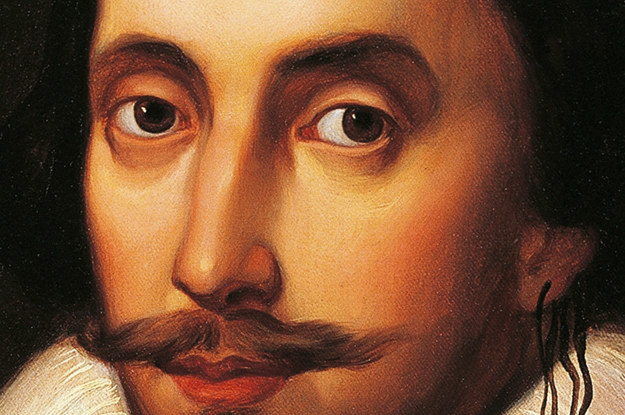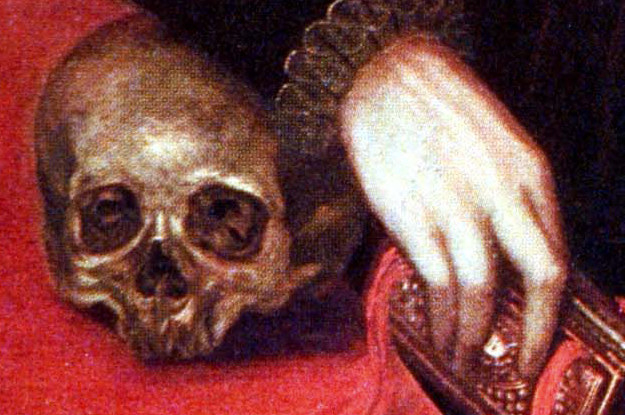
1. "Knock knock! Who's there?"
"Here's a knocking indeed! If a man were porter of hell-gate, he should have old turning the key. [Knocking within.] Knock, knock, knock! Who's there, i' the name of Beelzebub?"
—Macbeth, Act II, Scene iii
2. "Swagger"
"What hempen home-spuns have we swaggering here, so near the cradle of the fairy queen?"
–A Midsummer Night's Dream, Act III, Scene i
3. "Elbow room"
"Ay, marry, now my soul hath elbow-room; It would not out at windows nor at doors."
—King John, Act V, Scene vii
5. "One fell swoop"
"He has no children. All my pretty ones? Did you say all? O hell-kite! All? What, all my pretty chickens and their dam at one fell swoop?"
—Macbeth, Act IV, Scene iii
6. "Puppy-dog"
"Here's a large mouth, indeed, that spits forth death and mountains, rocks and seas, talks as familiarly of roaring lions as maids of thirteen do of puppy-dogs!"
—King John, Act II, Scene i
7. "For goodness' sake"
"Therefore, for goodness' sake, and as you are known the first and happiest hearers of the town, be sad, as we would make ye."
—King Henry VIII, Prologue

8. "Catch a cold"
"Your hand; a covenant: we will have these things set down by lawful counsel, and straight away for Britain, lest the bargain should catch cold and starve."
—Cymbeline, Act I, Scene iv
9. "Fashionable"
"For time is like a fashionable host that slightly shakes his parting guest by the hand, and with his arms outstretch'd, as he would fly, Grasps in the comer: welcome ever smiles, and farewell goes out sighing."
—Troilus and Cressida, Act III, Scene iii
10. "Puking"
"At first the infant, mewling and puking in the nurse's arms."
—As You Like It, Act II, Scene vii
11. "Break the ice"
"If it be so, sir, that you are the man must stead us all and me amongst the rest, and if you break the ice and do this feat, achieve the elder, set the younger free for our access, whose hap shall be to have her will not so graceless be to be ingrate."
—The Taming of the Shrew, Act I, Scene ii
12. "Majestic"
"Ye gods! It doth amaze me a man of such a feeble temper should so get the start of the majestic world and bear the palm alone."
—Julius Caesar, Act I, Scene ii
13. "Gloomy"
"May never glorious sun reflex his beams upon the country where you make abode; But darkness and the gloomy shade of death environ you, till mischief and despair drive you to break your necks or hang yourselves!"
—King Henry VI, Part I, Act V, Scene iv
14. "Cruel to be kind"
"I must be cruel, only to be kind: Thus bad begins and worse remains behind."
—Hamlet, Act III, Scene iv

16. "Love is blind"
"But love is blind and lovers cannot see the pretty follies that themselves commit; For if they could, Cupid himself would blush to see me thus transformed to a boy."
—The Merchant of Venice, Act II, Scene vi
17. "Zany"
"Some carry-tale, some please-man, some slight zany, some mumble-news, some trencher-knight, some Dick, that smiles his cheek in years and knows the trick to make my lady laugh when she's disposed, told our intents before."
—Love's Labour's Lost, Act V, Scene ii
18. "A heart of gold"
"The king's a bawcock, and a heart of gold, a lad of life, an imp of fame; Of parents good, of fist most valiant."
—Henry V, Act IV, Scene i
19. "Lonely"
"My hazards still have been your solace: and believe't not lightly — though I go alone, like to a lonely dragon, that his fen makes fear'd and talk'd of more than seen — your son will or exceed the common or be caught with cautelous baits and practise."
—Coriolanus, Act IV, Scene i
20. "All of a sudden"
"I pray, sir, tell me, is it possible that love should of a sudden take such hold?"
—The Taming of the Shrew, Act I, Scene i

